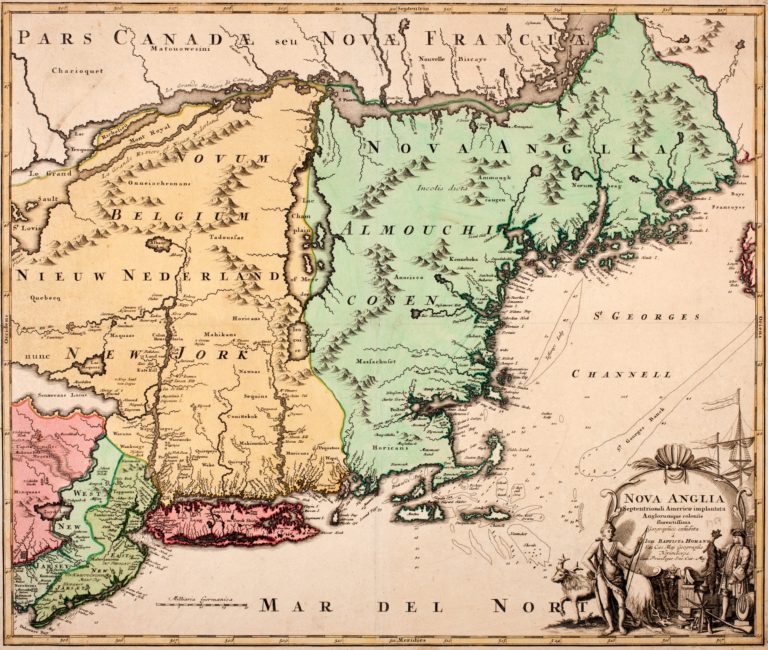Poetic Order in Sarah Kemble Knight’s Journal

Upon her return to Boston, Madam Sarah Kemble Knight wrote in her 1704 journal that her “Kind relations and friends flock[ed] in to welcome mee and hear the story of my transactions and travails.” Knight’s account merits such “flocking”—her journal chronicling her departure and return from Boston to New York along post roads is one of the first written accounts of such travel by a woman. However, her “travails” are not only noteworthy because of the physical exertion such a journey required. Rather, Knight’s use of poetry to contain and resolve potential threats along her travels demonstrates the integral role her mental trials assume in navigating such encounters.
Knight turns to original verse at five moments in her journal, moments marked by fear and discomfort. During her nighttime travels in the woods, she addresses the moon as her guide in one poem and then turns to considering the imposing trees in another, refiguring them as steeples and castles. After arriving at an inn, she cannot sleep because of loud patrons, leading to a plea that they rest. As a result, she crafts verses warning future travelers of the lodgings. Lastly, upon witnessing an impoverished family, Knight reflects on her own, more comfortable condition.
By positing these moments of verse narration alongside a summary of each day, Knight presents an alternative mental framework to each physical moment. Fittingly, she describes these moments as “divirting thot’s,” entities that structurally divert from the prose narration and redirect her daily account. In the first instance, after fording a river and entering woods, “Yet swelling fears surprise; all dark appears— / Nothing but Light can disipate those fears.” After addressing the moon, though, “The Boistero’s Trees now Lend a Passage Free, / And pleasant prospects thou giv’st light to see.” While her poems may merely be a space for thoughts, by presenting such musings in verse, Knight privileges their capabilities. Only in this space can she properly address the moon, which in turn opens safe passage. Imagining a response from the moon enacts its calm, allowing Knight to write herself and her surroundings into resolution. By liberating her thoughts from the space of prose and her account from the limitations of physicality, Knight can transform the landscape through her narration, using poetry to “divert” and contain the threat of the unfamiliar.
The poems’ structures mirror this conceptual goal: throughout the five interludes, Knight writes in iambic pentameter or tetrameter, organizing her verse in combinations of triplets and couplets. In contrast to the free form of her prose, in which the episodes of each day shape her narrative, these poems instead organize each moment into a dictated form, literally aligning each incident into order.
Consequently, Knight’s strategy of containment expands outside the wilderness. In each poetic instance, she not only presents an alternative approach to the present (recasting trees as steeples and castles, for instance) but also indicates the arrival of a desired future. During her stay at the inn, Knight, frustrated by the clamor of her fellow guests, implores, “I ask thy Aid, O Potent Rum! / To Charm these wrangling Topers Dum /…/ Intoxicate them with thy fumes: / O still their Tongues till morning comes!” In one of the many comedic moments of the text, Knight uses an apostrophe to inhabit the imperative voice, demanding quiet. Miraculously, the commotion soon ends, Knight explaining, “I know not but my wishes took effect.” Pointing to her “wishes,” Knight implies that the act of composing the poem resulted in this effect; the imperative becomes the declarative. By harkening to rum, Knight takes on its power, eliminating the threat, or at the very least the nuisance, of the drunken men she could not physically confront. While structurally Knight’s thoughts remain isolated from an account of the previous day, the resolution that verse’s imagination activates expands into the physical world of her prose. Through accounting what she hopes will occur, Knight actually narrates its occurrence, using verse to write such diversions into her journal’s reality.
In a work by the rare woman traveling these roads, poetry enacts resolution for Knight. The prose of Knight’s journal recounts her daily progress, communicating her past to her reader. In contrast, her verse gestures to a future that can only be conceived outside of physical endeavors. Knight’s mental travails ensure her physical progress, crafting and structuring both her narrative and her journey.
Further Reading
Sarah Kemble Knight, The private journal of a journey from Boston to New York in the year 1704, edited by William Law Learned (Albany, N.Y., 1865).
Susan Clair Imbarrato, Traveling Women (Athens, Ohio, 2006).
This article originally appeared in issue 17.3 (Spring, 2017).
Kimberly Takahata is a doctoral candidate in the Department of English and Comparative Literature at Columbia University, where she studies the intersection of narrative, temporality, and ontology.